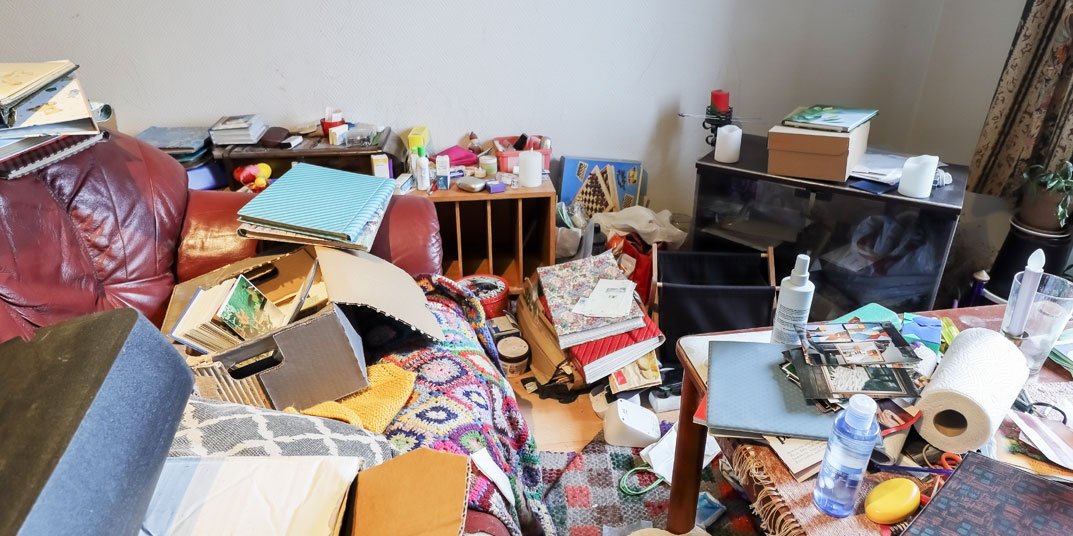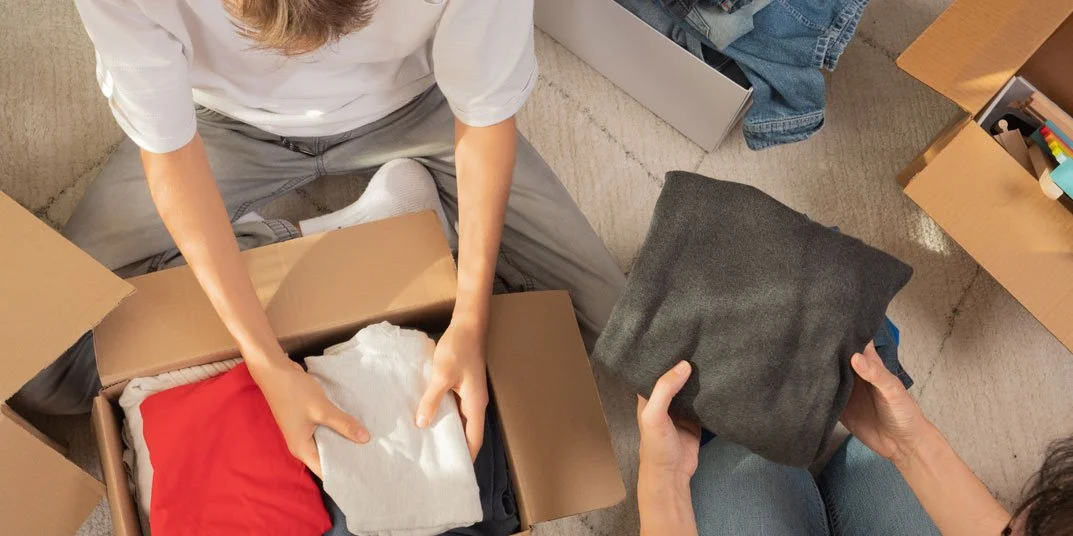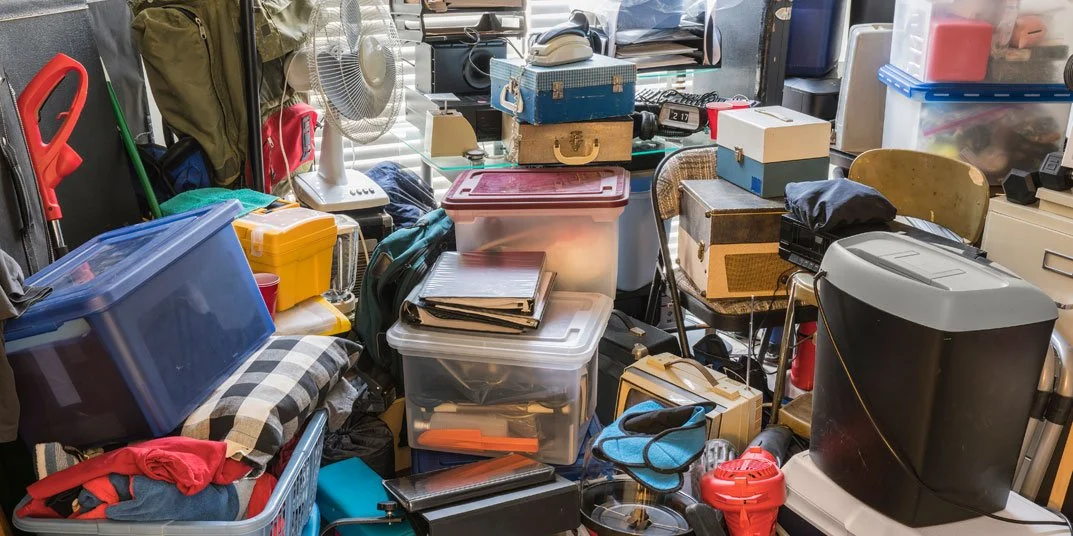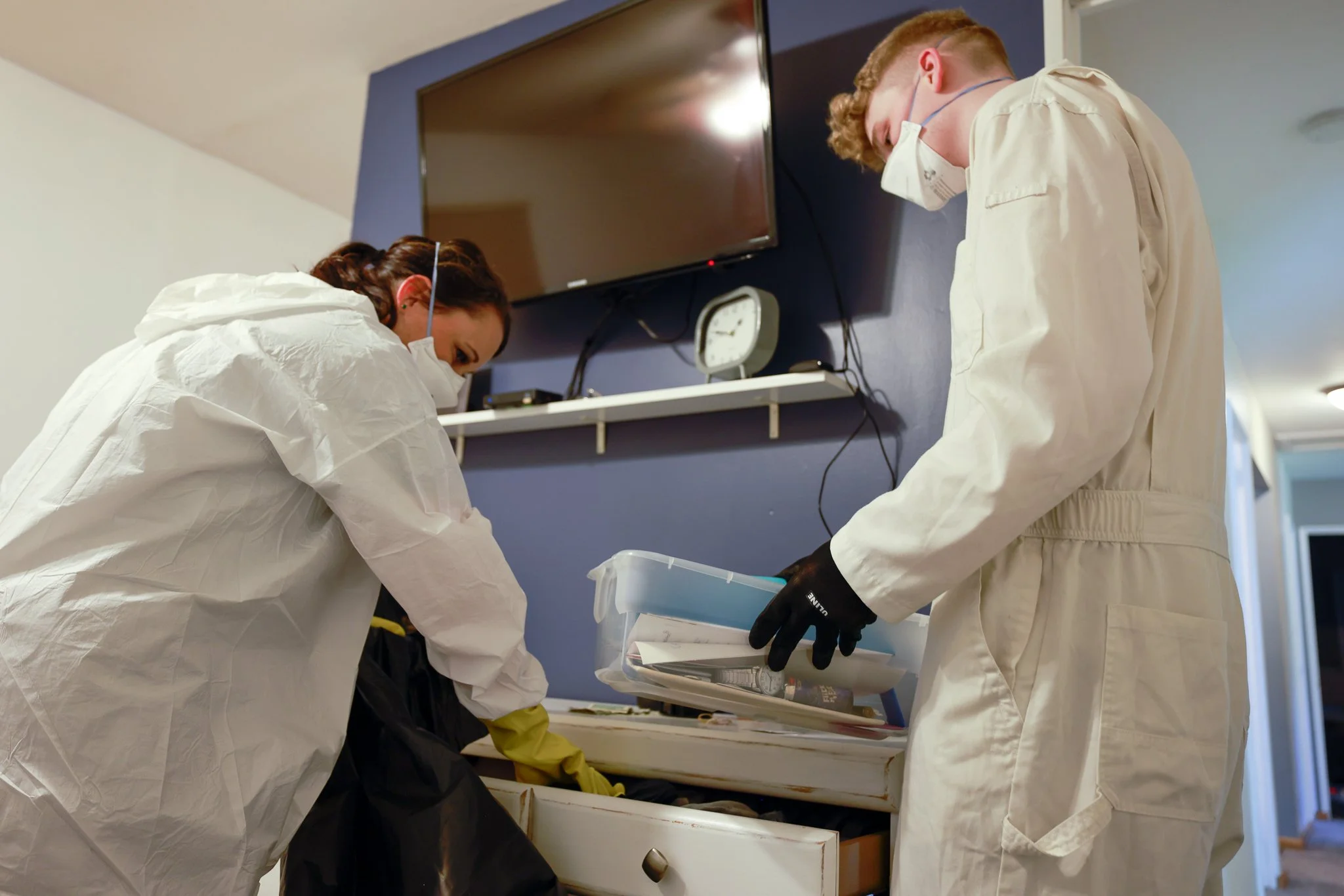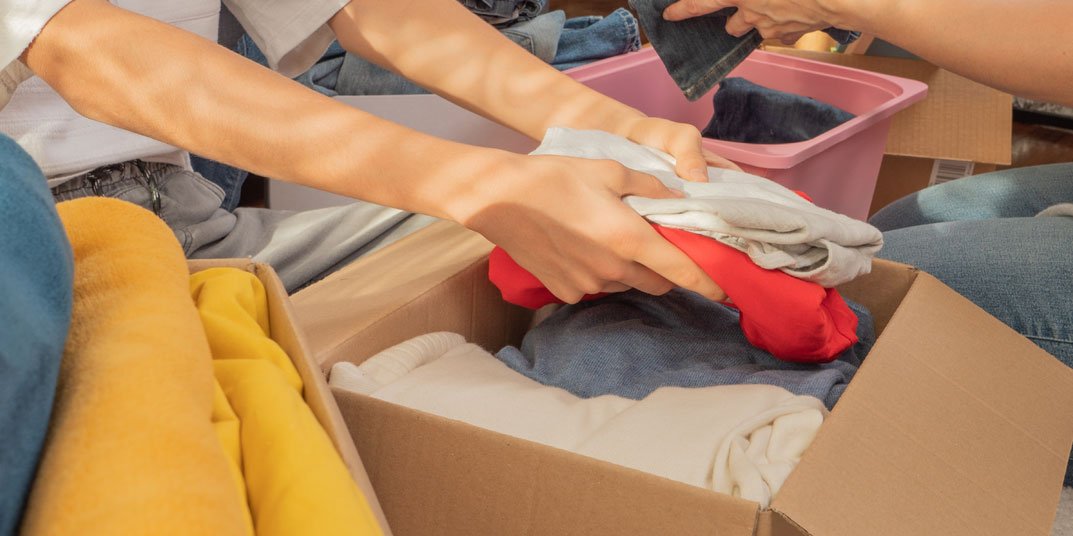7 Cleaning Tips for Extremely Cluttered Homes
Whether you're dealing with your own cluttered space or helping a loved one, the mountain of belongings can feel insurmountable.
At Advanced Bed Bug Preparation, we understand that dealing with hoarding situations requires both expertise and compassion. Our professional cleanout services help families and individuals restore their living spaces to safe, functional environments with dignity and respect.
While some situations require professional intervention, here are 7 practical tips can help you begin the process of reclaiming your living space, one step at a time.
1. Set Manageable Goals
The biggest mistake people make when tackling extreme clutter is trying to do everything at once. This approach leads to burnout, frustration, and often abandoning the project entirely. Here are some tips to follow instead:
Start Small
Begin with just one small area – perhaps a single drawer, a small table, or even just a chair that needs to be cleared. Completing these tiny victories builds momentum and confidence for larger tasks.
Create Daily Targets
Set realistic daily goals such as "clear one square foot of floor space" or "fill one small garbage bag." These achievable targets prevent overwhelm while creating steady progress.
Celebrate Progress
Acknowledge every small win. Take before and after photos to document your progress, no matter how minor it may seem. These visual reminders of your accomplishments can motivate you during difficult moments.
Focus on Safety First
Prioritize clearing pathways, exits, and areas around safety equipment like smoke detectors and electrical panels. Creating safe navigation routes should be your immediate priority.
2. Donate and Sell What You Can
One of the most challenging aspects of decluttering is the emotional attachment to items and the feeling that everything has potential value. However, donating and selling appropriate items can make the process feel more positive and purposeful.
Identify Donation-Worthy Items
Look for clothing in good condition, books, kitchenware, and household items that are clean and functional. Many local charities welcome these donations and can provide tax-deductible receipts.
Consider Online Sales
For items with genuine value, consider online platforms like Facebook Marketplace, eBay, or local buy/sell groups. However, set a time limit – if items don't sell within a reasonable timeframe, donate them instead.
Host a Garage Sale
If you have enough quality items, a garage sale can help you declutter while earning some money. Price items to sell, not to maximize profit – the goal is removal, not income.
Remember the Greater Good
Focus on how your donations will help others. Your unused items could become someone else's treasures, making the letting-go process feel more meaningful.
3. Use the Box Technique
The box technique is an excellent method for managing the emotional and decision-making challenges of extreme decluttering. This system helps you sort items without getting overwhelmed by constant decision-making.
How the Box Technique Works
Create four distinct areas or boxes labeled: Keep, Donate, Sell, and Trash. As you work through cluttered areas, place each item into one of these categories without overthinking the decision.
The "Maybe" Box Strategy
For items you're unsure about, create a fifth "Maybe" box. Set these boxes aside for 30-60 days. If you don't retrieve anything from the "Maybe" box during this time, donate the entire contents without opening it again.
Room-by-Room Application
Use the box technique in each room, but don't move to the next room until you've completely processed the current one. This prevents the overwhelming feeling of having multiple unfinished areas.
Quick Decision-Making Rules
Establish rules to speed up decisions: "If I haven't used it in a year, it goes in donate." "If it's broken and I haven't fixed it in six months, it goes in trash." These rules prevent endless deliberation over individual items.
4. Tackle One Category at a Time
Start with Obvious Categories
Begin with clear categories like expired medications, old magazines, or broken electronics. These items are easier to part with and create immediate visible progress.
Group Similar Items
Collect all items from the same category (like books, kitchen gadgets, or craft supplies) in one area. This helps you see the true volume of what you own and makes decisions easier.
5. Address Health and Safety Hazards First
Extremely cluttered homes often contain health and safety hazards that require immediate attention, regardless of other organizing priorities.
Identify Immediate Dangers
Look for blocked exits, fire hazards, mold growth, pest infestations, or structural damage. These issues take precedence over general decluttering and may require professional intervention.
Clear Essential Pathways
Ensure safe access to all exits, the kitchen, bathroom, and sleeping areas. These pathways are critical for daily functioning and emergency situations.
Remove Perishables and Hazardous Materials
Dispose of expired food, chemicals, medications, and other potentially dangerous items immediately. These pose health risks and can attract pests.
Assess Infrastructure
Check that plumbing, electrical, and heating systems are accessible and functioning. Clutter around these systems can create serious safety hazards.
6. Create Systems for Maintenance
Cleaning an extremely cluttered home is only the first step – maintaining the progress requires ongoing systems and habits.
Establish Daily Routines
Create simple daily habits like "10-minute tidy" sessions or "one item out for every item in." These small consistent actions prevent clutter from reaccumulating.
Designate Specific Homes for Items
Every kept item should have a designated storage location. If you can't identify where something belongs, it may not belong in your home.
Regular Maintenance Schedule
Set up weekly or monthly decluttering sessions to address accumulation before it becomes overwhelming again. Mark these sessions on your calendar like important appointments.
Address Root Causes
Consider why clutter accumulated in the first place. Was it emotional, financial, or lifestyle-related? Addressing underlying causes helps prevent future accumulation.
7. Know When to Reach Out for Help
Recognizing when a situation requires professional intervention is crucial for both safety and success. Some cluttered homes present challenges that are beyond what individuals can safely or effectively handle alone.
Signs You Need Professional Help
If you encounter structural damage, hazardous materials, pest infestations (e.g. bed bugs, cockroaches, gnats, etc.), or situations that feel emotionally overwhelming, it's time to call professionals. When clutter prevents access to essential utilities or creates safety hazards, professional intervention becomes necessary.
Health and Safety Concerns
Properties with mold, extensive pest infestations, or biohazardous materials require specialized equipment and training to address safely. Attempting to handle these situations without proper protection can cause serious health problems.
Emotional Support Needs
Hoarding situations often involve complex emotional components. Professional services can provide the compassionate, non-judgmental support needed to navigate these challenges successfully.
Time and Scale Considerations
Large-scale cleanouts can take weeks or months for individuals to complete. Professional services can accomplish the same work in days, minimizing the disruption to your life and reducing the emotional toll of extended projects.
Our Professional Hoarding Cleaning Services
At Advanced Bed Bug Preparation, we understand that dealing with hoarding situations requires both expertise and compassion. Our experienced hoarding cleaning service team begins with a thorough assessment of your situation. We evaluate the space, discuss your needs, and create a customized plan that works for you.
Our Hoarding Cleaning Services Include:
Complete property cleanout and organization
Safe removal of hazardous materials
Deep cleaning of all areas
Proper sorting of valuables and important documents
Responsible disposal and recycling
Compassionate Support
We recognize that hoarding cleanouts can be emotionally challenging. Our experienced team provides:
Respectful, non-judgmental support
Flexible scheduling to work at your pace
Clear communication throughout the process
Confidential services
If you're feeling overwhelmed or if your situation involves safety concerns, don't hesitate to reach out for professional help. There's no shame in seeking support – it's a sign of strength and self-care.
Contact Advanced Bed Bug Preparation Today!
Professional cleanout services offer expertise in handling hazardous materials, knowledge of proper disposal methods, and the emotional support needed during challenging situations. Contact us by phone at (920) 355-1535 or by email at info@advancedbbp.com today for a confidential consultation for hoarding cleaning services. At Advanced Bed Bug Preparation, we offer services for hoarding, eviction, and extreme cleanout situations for neglected indoor spaces, and also bed bug and cockroach preparation services.
Schedule a consultation with Nicole today for a detailed plan. Contact us online to schedule your consultation! We serve customers in Appleton, Green Bay, Oshkosh, Fond du Lac, and Sheboygan throughout Northeast Wisconsin, and we're here to help you restore your space with dignity and respect.
